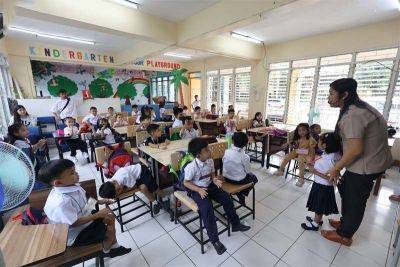Delays in testing leave DepEd in the dark about student progress
MANILA, Philippines — The Department of Education failed to administer most of its large-scale student assessments on time in the last seven years, based on new government data, with procurement hiccups and lack of educational assessment staff as the main reasons for the delay.
Of the 27 major learning assessments scheduled since 2016, DepEd only administered two tests on time. Thirteen tests were conducted late, while 12 were skipped due to procurement challenges and the COVID-19 pandemic, according to the Second Congressional Commission on Education (EDCOM 2)’s report released Monday.
DepEd administers the National Achievement Test (NAT) every school year for students in Grades 6, 10 and 12. It also conducts an annual literacy and numeracy test called the Early Language, Literacy and Numeracy Assessment (ELLNA) for Kinder to Grade 3 students.
EDCOM 2 noted that regular delays in the procurement process for the NAT and ELLNA often push back the timeline for test taking and analysis of results.
As a consequence, most exams tend to be held at the end of the school year, which means that by the time students’ scores are released, these can no longer be used to judge their progress against standards and to improve teaching practices, EDCOM 2 said.
Even before the COVID-19 pandemic, the NAT was not administered at all five times across different grade levels since 2016, while the ELLNA was skipped twice.
No single NAT for Grade 10 has been administered on time since 2016, according to data analyzed by EDCOM 2.
DepEd’s procurement delays overall make it difficult to produce timely and useful data for policymakers on whether students know enough for their level, according to EDCOM 2’s Year One report, which summarized the commission’s findings in its first year reviewing the education system.
For instance, DepEd often struggles to find bidders for the administration of national assessments due to the strict requirements for the printing of exams and the low price of the contracts, according to EDCOM 2.
Citing the Bureau of Education Assessment (BEA), the report said that few vendors bid for the printing and packaging of test booklets as staff are not allowed to leave







